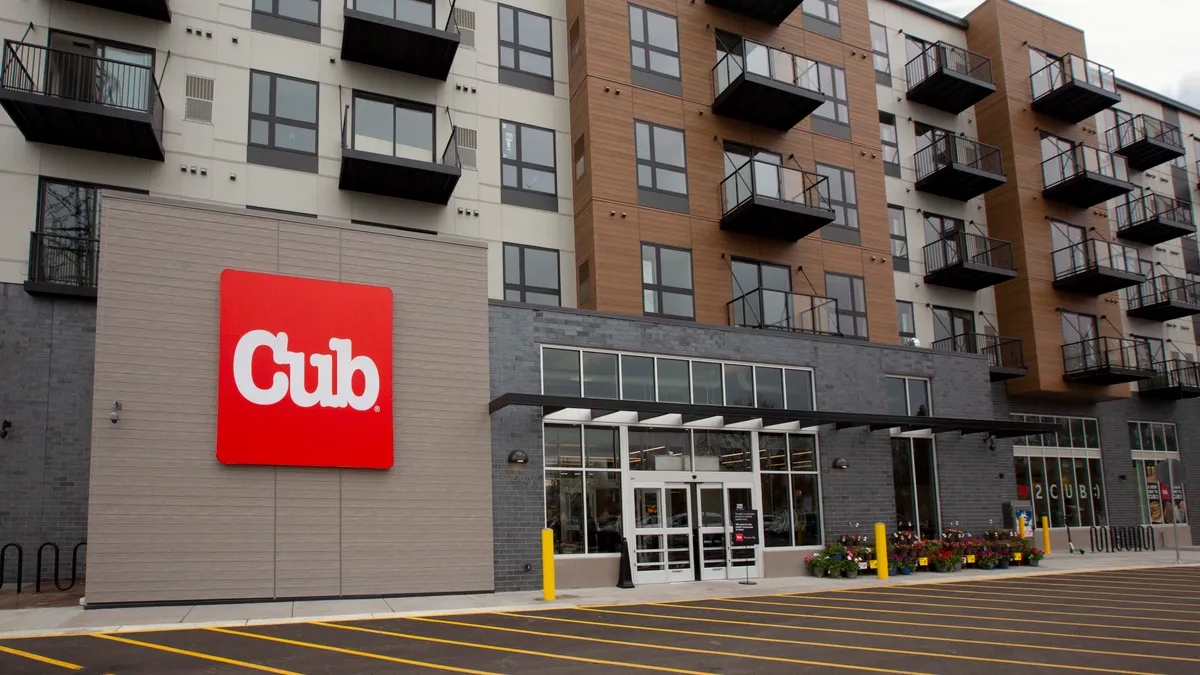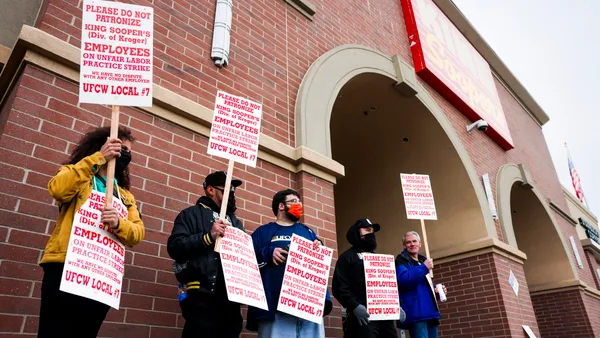Dive Brief:
- United Natural Foods, Inc. (UNFI) CEO Steve Spinner announced this week that the company is delaying the sale of most of its remaining retail stores under the Shoppers Food & Pharmacy and Cub Foods brands for another year to 18 months, or until it has a better sense of the retail mergers and acquisitions market. He said the company expects to make a higher premium on store sales due to elevated results during the pandemic.
- Spinner, who spoke participated in a Q&A session during BMO’s virtual “Farm to Market” conference, said shoppers are shifting towards lower-price items, with demand from conventional retailers outpacing that of natural foods retailers three to one. Spinner said he expects to see elevated food-at-home shopping and value-based purchasing continue over the next 18 to 24 months amid the economic downturn, driven by high unemployment.
- UNFI announced preliminary third quarter results this week showing a 12% increase in net sales for the period ended May 2, to $6.6 billion. Net income rose 54% to $88 million, and adjusted earnings per share rose 130% to $1.40.
Dive Insight:
Spinner’s observations on conventional versus specialty demand reflect shifting purchasing behaviors by consumers as the COVID-19 pandemic stretches into its third month. Whereas shoppers focused on stock-up buying in March and early April, now they’re being more frugal with their purchases and turning more to private labels and conventional items.
“COVID got it started but the recession is what is going to keep it going,” Spinner said. “Food-at-home is going to continue. Value-based shopping in the conventional retailers is going to continue. And we certainly see that happening in the next 18 to 24 months.”
Spinner said sales growth is particularly strong among independent conventional grocers — a channel UNFI has struggled to expand since it acquired Supervalu nearly two years ago.
“I think that’s a factor of the rush back into the community independents that are so close to the communities that they serve,” he said “It’s really just customers seeking value.”
The boost in conventional sales serves as validation for UNFI, which bought struggling Supervalu for $2.9 billion in order to offer a more diverse product assortment and serve a broader customer base. Natural foods and specialty retailers are UNFI’s legacy strength, however, and significantly slower growth on that side of the business could be a worrying sign.
On the retail side of the business, UNFI has taken Shoppers and Cub Foods stores off the block and halted store closures during the pandemic so that locations can serve shoppers during a time of high demand.
“We felt like we had a commitment to the communities to make sure those markets were served with food,” Spinner said. “The thought of saying to an underserved, difficult market that we were going to close a store that they relied on was just not something we could morally get our head around.”
UNFI will eventually begin closing and selling its Shoppers stores piecemeal once again but plans to hold onto a “handful” of stores along with its 80 or so Cub Foods locations for another year to 18 months as it reassesses the retail acquisitions market. UNFI had previously planned to exit both banners and be out of retail completely by the end of this year. Despite the delay, Spinner said he anticipates that the company will earn a higher premium for the locations, which UNFI will use to further pay down debt.
“The financial results for Shoppers and Cub are meaningfully different today than they were six months ago, so the value of when the market or the M&A market returns for retail will be considerably higher," he noted. "It’s just a question of when as opposed to if.”
In the meantime, UNFI is going to spin off its retail division in order to better manage it and eventually sell it off. The company is also going to sell off all remaining Cub and Shoppers distribution centers by the end of the fiscal year.
“Today [wholesale and retail] are really tightly linked together, and it makes it really complicated and difficult to execute a sale,” Spinner said. “By the end of our fiscal year we will have two businesses, completely separate.”













